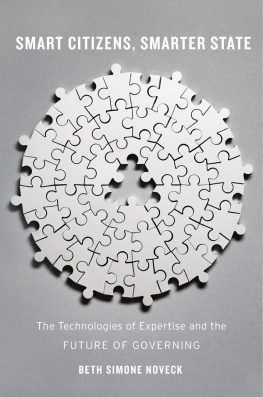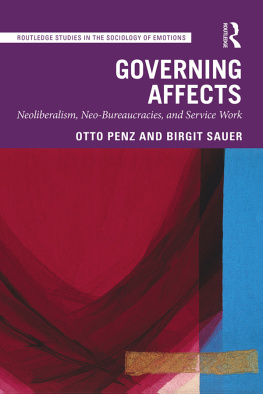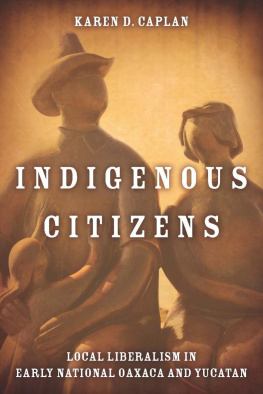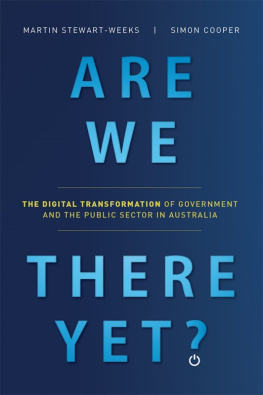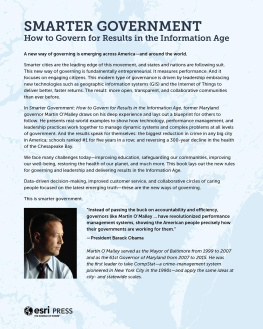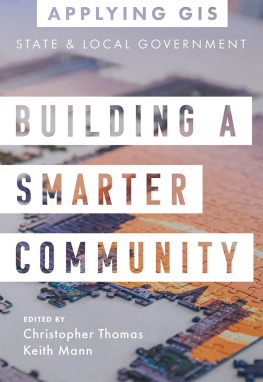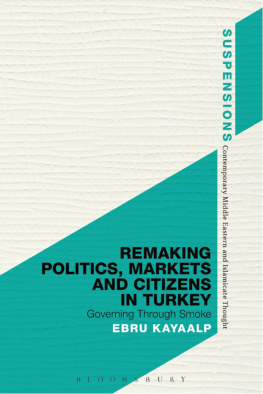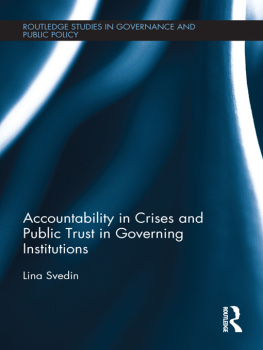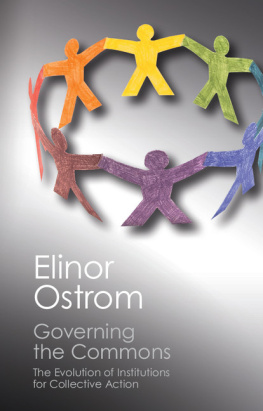SMART CITIZENS,
SMARTER STATE
The Technologies of Expertise
and the Future of Governing
BETH SIMONE NOVECK
Cambridge, Massachusetts, and London, England 2015
Copyright 2015 by Beth Simone Noveck
All rights reserved
Jacket design: Graciela Galup
Jacket image: Getty Images
978-0-674-28605-4 (alk. paper)
978-0-674-91545-9 (EPUB)
978-0-674-91544-2 (MOBI)
The Library of Congress has cataloged the printed edition as follows:
Noveck, Beth Simone.
Smart citizens, smarter state : the technologies of expertise and the future of governing / Beth Simone Noveck.
pages cm
Includes bibliographical references and index.
1. Public administrationUnited StatesCitizen participation. 2. Public administrationUnited StatesDecision making. 3. Public administrationTechnological innovationsUnited States. 4. Political participationTechnological innovationsUnited States. 5. Political planningUnited StatesCitizen participation. 6. Information societyPolitical aspectsUnited States. 7. United StatesPolitics and government21st century. I. Title.
JK421.N29 2015
352.3'80973dc23 2015014352
Openness will strengthen our democracy and promote efficiency and effectiveness in Government. Public engagement enhances the Governments effectiveness and improves the quality of its decisions. Knowledge is widely dispersed in society, and public officials benefit from having access to that dispersed knowledge. Executive departments and agencies should offer Americans increased opportunities to participate in policymaking and to provide their Government with the benefits of their collective expertise and information. Executive departments and agencies should use innovative tools, methods, and systems to cooperate among themselves, across all levels of Government, and with nonprofit organizations, businesses, and individuals in the private sector.
Presidential Memorandum on Transparency and Open Government, 2009
When I arrived in Washington at the start of the first Obama administration to head up the White Houses Open Government Initiativean effort to apply technology and innovation to improve the workings of governmentI was full of optimism from having served as a volunteer adviser to the most successful Internet-based campaign in history. The Obama presidential campaign in 2007 and 2008 had encouraged its supporters to blog freely on the campaigns website. It had set up listservs and wikis dubbed Idearaisers to invite over five thousand experts from around the country to discuss ideas and submit them to the campaign for consideration. Early in the under-resourced campaign, volunteers on the West Coast set up campaign offices independent of the central office in Chicago. Even after the establishment of a more formal campaign apparatus, techies volunteered their time and talents to build tools to get out the vote.
Between Election Day and the inauguration, we created the first ever presidential transition website to involve the American people in the process of planning the first 100 days of the new administration. We asked people to submit both their questions and their ideas as part of a Citizens Briefing Book, a unique attempt, inspired by Idearaisers, to invite citizens to tell the presidential transition team what they thought should be on the new presidents first-100-day agenda. More than 125,000 people shared 44,000 ideas.
On January 21, 2009, his first day in office, as his first executive action, President Obama signed the Memorandum on Transparency and Open Government. This document committed his administration to establishing a system of transparency, public participation, and collaboration for government. The memorandum set in motion a national and, subsequently, an international effort to encourage public institutions to innovate to improve peoples lives. The vision underlying the Open Government Memorandum was to move away from governing behind closed doors through a limited set of public policy professionals and their adjutants. The explicit goal was to move toward a world of smarter governance in which collaboration and conversation between government and citizens would become the default way of working on a day-to-day basis. Implementing this vision would require a radical reinvention of government: fundamentally redesigning, not merely reforming, how institutions make decisions by opening them up to the value embedded in citizens skills, talents, and abilities.
As we unpacked our boxes in cramped White House offices, we knew that if we were going to be able to tap the intelligence and expertise of the American people and the civil service in new ways, we would need to shape our plans and craft our policies on opening government in a fashion that modeled the practices we were advocating. This was much easier said than done. We might have been on top of the world, but we were running Windows 2000. One of the newly appointed Obama administration chief technology officers of a large Cabinet department described the situation in his agency like this: We have a nearly obsolete infrastructure. The amount of manual work is amazing, and embarrassing. Dont think Google server farm. Think gerbil on a wheel. And outdated technology infrastructure was only one of the impediments. Overzealous security mavens blocked all access to social media sites. Even the president had to exert his authority as leader of the Free World to be allowed to keep his mobile device. Statutory gift restrictions intended to prevent corruption and bribery prevented us from using even commonly used open source software. Security and accessibility inspections could delay the installation of any new software on a White House server for a year or more. The White House did not yet have a blog, let alone a Facebook or Twitter account, only an arcane and barely functioning website inherited from the Bush administration, whose idea of openness was to make a video of the White House Christmas tree from the vantage point of Barney, the First Dog. We had to contract with an organization outside government to host our initial online open government policy brainstorming sessions with the public.
When we began to address substantive priorities, we knew that a few people in a White House office and even a few hundred across federal agencies did not possess all the expertise necessary to devise policies on technical and complex subjects. But when we started to look for those people, we were quickly taught the Washington lesson that it was unwise to be forward leaningthat is, to tip ones hand regarding any forthcoming policies by discussing them publicly. The idea of an institution as hidebound as the White House consulting with the civil service, let alone the public, before a policy got framed and drafted was unheard of. The chief of staff of our office within the Executive Office of the President actually had to obtain the email addresses of agency heads surreptitiously in order to ask their permission for ordinary government employees to participate. The reason for these extraordinary measures: the standing practice that only the Office of Management and Budget was allowed to speak to agencies on behalf of the White House.

